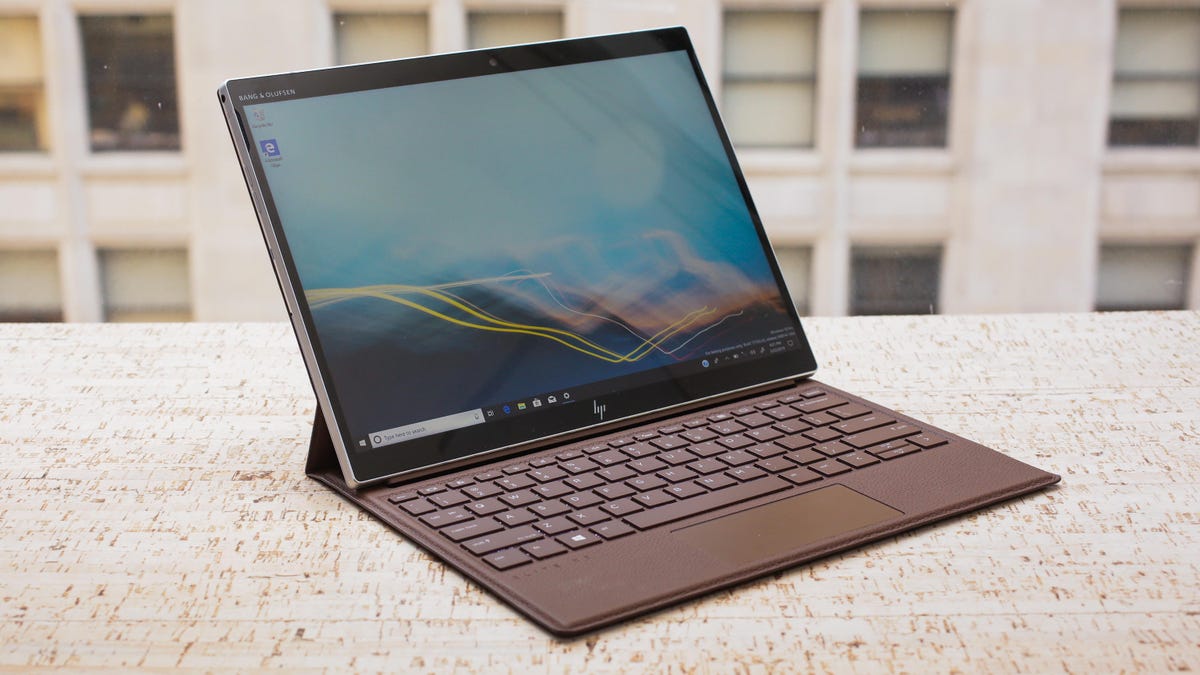Now What? HP's Alex Cho on the future of work-from-home laptops
The president of HP's Personal Systems team predicts the future of work and the computers you'll need for it.

The HP Elitebook X2.
We've been talking, over many months now, about how the nature of work is changing, and the tools we need to deal with those changes. Chief among that toolset is the computer, and more specifically the laptop.
In recent years some people may have dismissed the laptop, saying things like, "I do all my work from on my phone, or my iPad or even on my smartwatch." But once you take away all the support mechanisms built into your physical office and have to run a one-person show at home, the laptop becomes very important again, even if the hardware has historically been built around a vision of work that doesn't exist for many people right now.
Now what? That's the question I posed to Alex Cho, president of personal systems at HP .
More specifically: How can we change computers to more closely match what we're going to need going forward in this open-ended, work-from-home universe?
When Cho started working from home full-time (by his count, 19 weeks ago), his casual home PC setup wasn't up to the task. "I already had my beautiful 13-inch notebook," he says, "But guess what? A beautiful 13-inch notebook is great when you're working intermittently on it. But if you're on all day, you want something bigger."
While a 13-inch laptop is ideal for commuting or working from a coffee shop, I've transitioned to using 15- and 17-inch screens at home, while Cho says he's switched 95% of his usage to a big 34-inch all-in-one PC. "What's great about that," he says, "is that I can see multiple documents. I could be video conferencing with a PowerPoint next to me, which is nice." I rarely call anything involving PowerPoint "nice," but I get the idea.
But for workers thrown out of their office space unexpectedly, dropping a new 34-inch desktop on the kitchen table may not be realistic. Figuring out what remote workers really need is about more than screen real estate, Cho says, "We think of it almost as a hierarchy of needs. And you know, at the basic level people are first saying, 'I need to have a computer device in my home.'"
HP's 34-inch Envy all-in-one PC.
And for a meeting-heavy culture that now relies on video conferencing, he says that device needs to be "the equivalent of our eyes, nose, ears." And to date, most laptops have not had webcams or built-in microphones that could stand up for all-day, every-day use.
Fixing that is part of what Cho thinks the next generation of computers need to do. "Improve the mic performance. The camera performance. The speaker performance," he says. "People don't want to wear headsets all day long. They want to be able to not be encumbered ... they don't want to have to lean over and be close to the device when they speak, they would love to be able to stand back and have movement."
And for the unavoidable reality for most of us -- shifting our virtual offices from kitchen to bedroom to living room couch during the course of the day. Cho says, "They want something that allows them to work without being fixed in one position in front of their device. The perfect notebook will very much continue to enable different types of work in different places in the home."
You can watch our entire conversation here, or the rest of the Now What series here.

